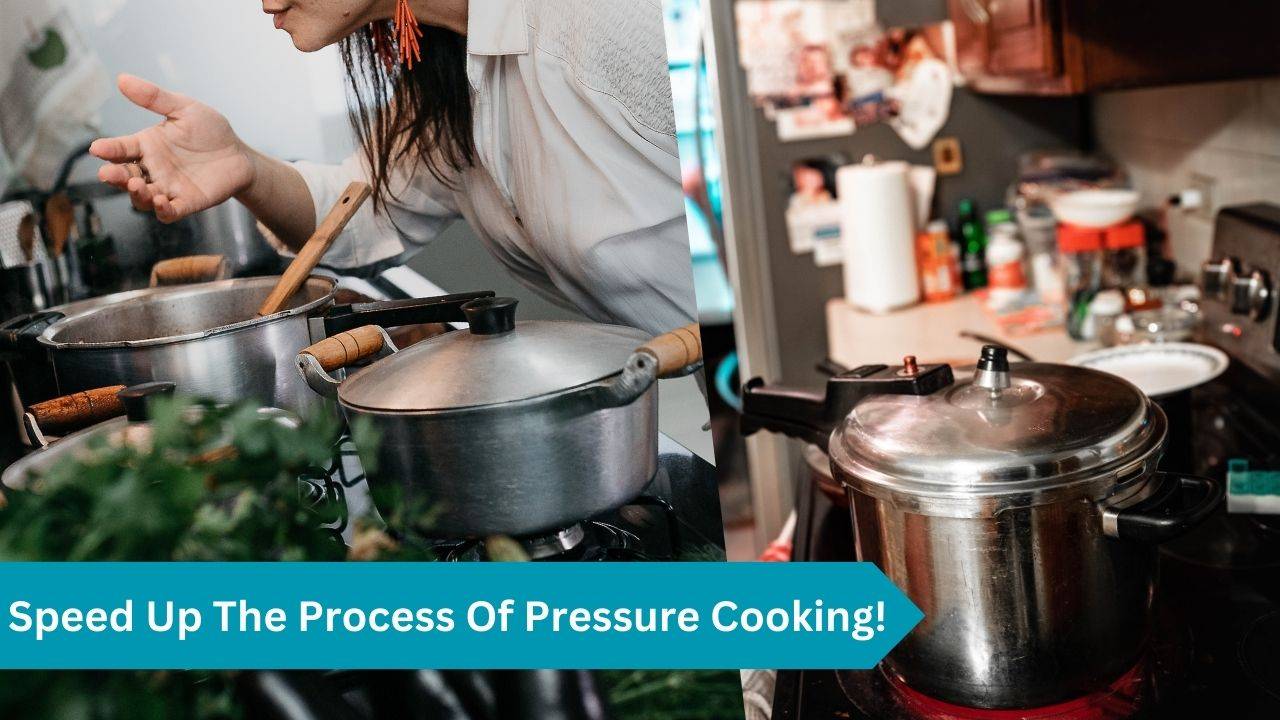
A pressure cooker is an indispensable tool in the kitchen, helping us prepare dishes like dals and rice quickly while enhancing their flavours through high-pressure cooking.
However, there are times when it doesn't yield the desired results. Surprisingly, it's not the pressure cooker itself but our unwitting actions that can slow down the cooking process. If you encounter this issue frequently, here are four helpful tips to expedite your pressure cooking experience:
- Avoid Overfilling the Pressure Cooker- One common mistake is overfilling the pressure cooker with water. Whether you're cooking legumes, rice, or any other food, it's essential to fill it only halfway. Excessive water can result in froth spilling out, creating a mess and significantly delaying the cooking process. To prevent this, add only the necessary amount of water. You can also add a teaspoon of ghee, which has a high smoking point and helps reduce foam production.
-
Close the Lid Properly- Many people struggle to fit the lid onto the cooker, often requiring a few attempts to get it right. Even after you've attached the lid, it's crucial to double-check that it's sealed correctly. Additionally, ensure that the gasket is properly inserted. An old or damaged gasket won't create the necessary pressure for cooking. Regularly replacing the gasket will ensure efficient and trouble-free cooking.
-
Keep the Steam Vent Clean- All pressure cookers have a steam vent from which steam is released. This vent can easily become blocked by food particles as steam rises. If your pressure cooker's steam vent is obstructed, it will naturally slow down the cooking process by preventing steam from escaping. Furthermore, this situation can be dangerous, potentially leading to the cooker exploding due to excess steam pressure. To prevent this, make it a habit to clean your pressure cooker regularly to facilitate faster cooking and avoid safety hazards.
-
Inspect for Faulty Parts- Pressure cookers endure frequent use and can deteriorate quickly. You may notice liquids seeping from the handles, which could be a sign of a faulty component or the result of overfilling the cooker with water, as mentioned earlier. It's essential to examine the handles, lid, gasket, and other parts for any signs of damage. Cooking with malfunctioning components can significantly slow down the process. In such cases, it's advisable to replace the pressure cooker to maintain the efficiency of your cooking equipment.
In conclusion, a pressure cooker is a valuable kitchen tool that can make cooking faster and more flavourful. However, it's essential to use it correctly and maintain its components for optimal performance. By following these four simple hacks - avoiding overfilling, ensuring a proper seal, keeping the steam vent clean, and inspecting for faulty parts - you can expedite your pressure cooking process and enjoy delicious, efficiently prepared meals.











